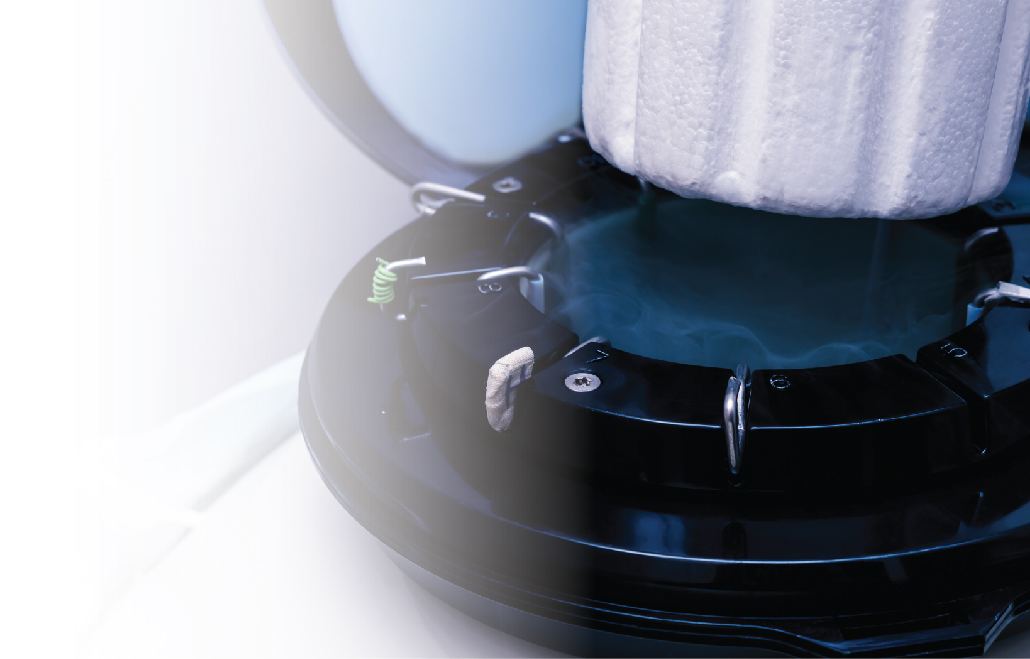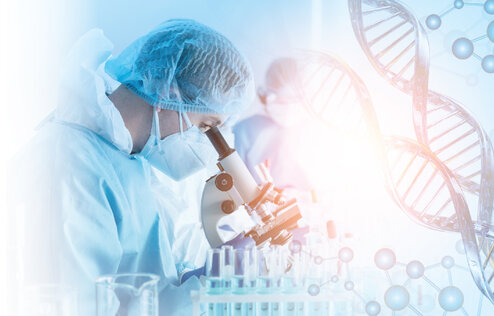ICSI Treatment with a High Success Rate for Getting Pregnant
Center : Nakornthon Gift Fertility Center
Article by : Dr. Ong-Arj Bovornsakulvong
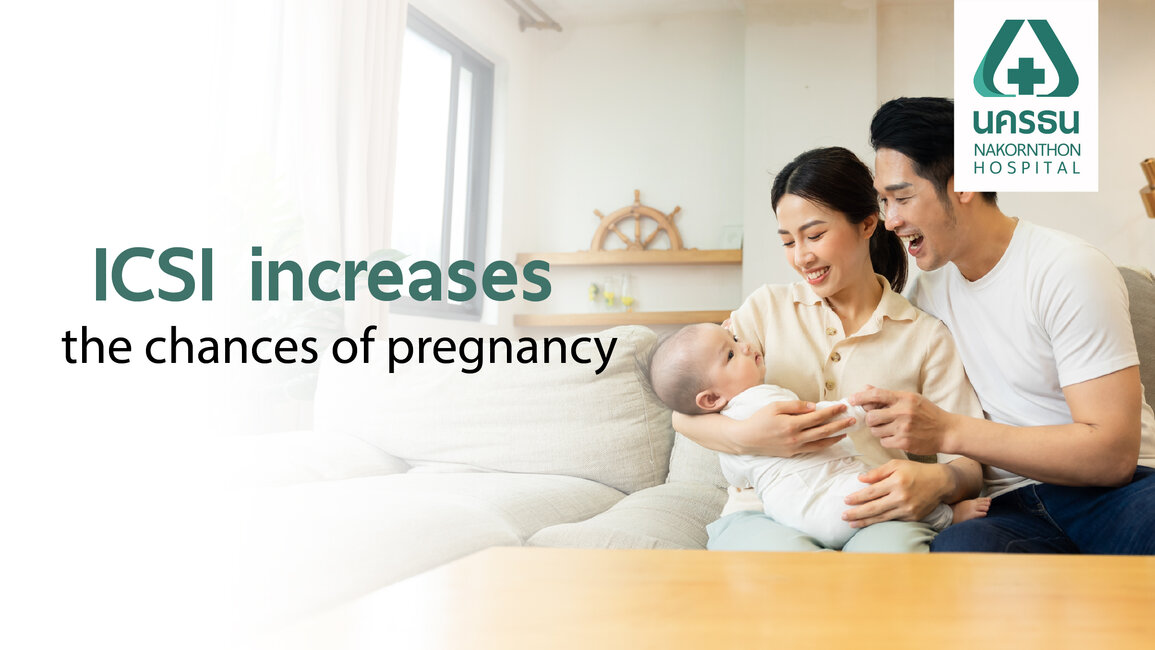
“Why haven’t we had a baby yet?” —a question that can weigh heavily on couples facing challenges with infertility. For many, ICSI (Intracytoplasmic Sperm Injection) offers hope. This advanced reproductive technology has significantly improved the chances of a successful pregnancy, especially in cases where difficulties in conceiving are linked to health conditions, hormonal imbalances, or age-related factors—whether from the male or female partner.
ICSI is one of the most effective fertility treatments available today, especially for couples dealing with severe male infertility or previous failed IVF attempts. It involves selecting the strongest sperm and injecting it directly into the egg, helping overcome fertilization barriers. Many couples have achieved their dream of starting a family through this method.
If you're planning to have a child and are considering ICSI treatment, our experts at Nakornthon Gift Fertility Center are here to help. We offer comprehensive infertility care with personalized treatment plans, experienced fertility specialists, and modern technologies—all dedicated to bringing happiness to your growing family.
Table of Contents
- What is ICSI?
- Who is ICSI suitable for?
- What is the difference between ICSI and IVF?
- The Process of ICSI
- The advantage of ICSI
- Is it painful to do ICSI?
- How long does ICSI take from start to finish?
- What to do after ICSI treatment
- What are the success rates for ICSI?
- ICSI at Nakornthon Hospital
- Free Online Consultation with a Specialist
What is ICSI?
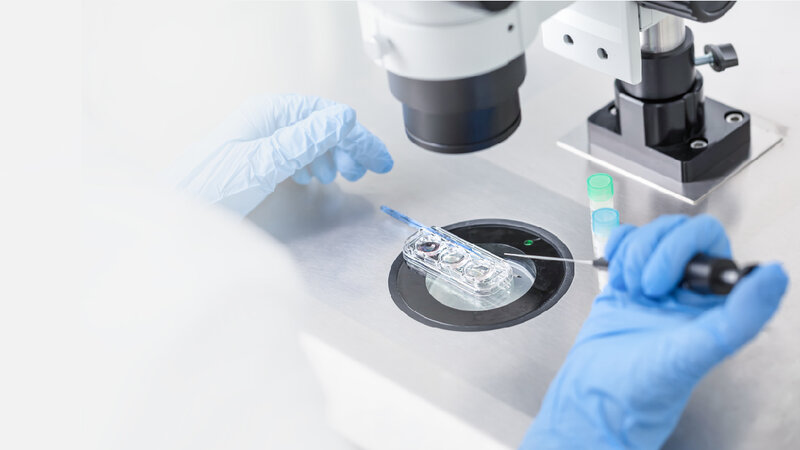

ICSI (Intracytoplasmic Sperm Injection) is one of the most advanced assisted reproductive technologies, commonly used as part of in vitro fertilization (IVF). In this procedure, a single, healthy, and motile sperm is carefully selected and injected directly into a mature egg using a fine glass needle. This process facilitates fertilization outside the body, especially in cases where natural fertilization is not possible—such as when sperm count is extremely low or the sperm cannot penetrate the egg on its own.
ICSI offers a targeted method to achieve fertilization and is particularly beneficial for couples experiencing severe male infertility. By using a high-precision technique to inject the sperm directly into the egg, ICSI significantly increases the chances of successful conception. It is considered a powerful medical solution for those struggling with infertility, helping many couples achieve their dream of parenthood.
Who is ICSI suitable for?
ICSI (Intracytoplasmic Sperm Injection) is a highly specialized fertility treatment designed for couples facing specific challenges in conception. It is especially recommended in the following cases:
- When the male partner has a low sperm count, abnormal sperm morphology, or poor sperm motility.
- In cases where the male partner is infertile due to a vasectomy but still has viable sperm that can be retrieved through surgical methods.
- When the female partner has a thick eggshell (zona pellucida), preventing natural fertilization even with standard IVF.
- For couples who may carry genetic disorders and require preimplantation genetic testing (PGT) to screen embryos for chromosomal abnormalities.
- For couples who have been diagnosed with unexplained infertility or have experienced repeated IVF failures.
- When the female partner is over the age of 35 and natural conception is less likely due to age-related fertility decline.
ICSI offers a targeted and effective solution for these conditions, significantly increasing the chances of successful fertilization and pregnancy.
What is the difference between ICSI and IVF?
ICSI vs IVF (In Vitro Fertilization) are both assisted reproductive technologies used to treat infertility. While the two procedures share similar initial steps, they differ significantly in how fertilization occurs.
With IVF, eggs and sperm are placed together in a laboratory dish, allowing fertilization to happen naturally. However, in some cases—such as when the female partner has a thicker eggshell due to age or the sperm is unable to penetrate the egg—fertilization may not occur successfully.
In contrast, ICSI involves the direct injection of a single healthy sperm into an egg using a fine needle. This more targeted method helps overcome fertilization barriers and is often recommended when standard IVF is not successful or when there are severe sperm-related issues. By bypassing natural fertilization challenges, ICSI can significantly increase the chances of conception for many couples.
The Process of ICSI
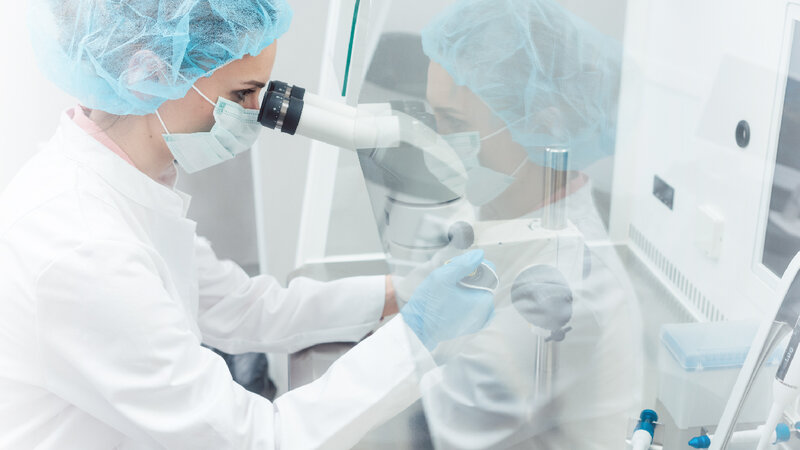

ICSI (Intracytoplasmic Sperm Injection) is an advanced form of in vitro fertilization (IVF) designed to increase the chances of successful pregnancy, especially for couples experiencing infertility due to health issues related to sperm or egg quality. The ICSI procedure consists of several key stages that are carefully monitored to ensure optimal outcomes for ICSI fertility treatment.
Ovarian Stimulation
The process begins with ovarian stimulation to encourage the growth of multiple eggs at the same time. This typically starts on day 2–3 of the menstrual cycle, using daily hormone injections for around 8–10 days. The goal is to develop approximately 8–15 mature eggs suitable for fertilization.
Monitoring Follicle Development
Throughout the stimulation process, the doctor will monitor the development of the follicles using ultrasound and hormone level assessments via blood tests every 4–5 days. Once the follicles have reached optimal size, a hormone injection is administered to mature the eggs in preparation for retrieval. This stage is crucial in the ICSI timeline, as proper timing is essential for successful egg maturation and retrieval.
Egg Retrieval
Once the eggs have matured, the patient must fast for at least 6 hours before undergoing egg retrieval. The procedure takes place 34–36 hours after the final hormone injection and involves retrieving the eggs through the vaginal wall. The collected eggs are then washed in culture medium and stored in the lab, ready for fertilization.
Semen Collection
Semen is collected by ejaculation into a designated container. The sample is then processed to select the most viable and strongest sperm. A single healthy sperm is injected directly into a mature egg in the laboratory using highly specialized equipment and high-resolution microscopy. If the male partner has previously undergone a vasectomy or no sperm are detected in the semen sample, sperm retrieval directly from the testicles may be necessary. This step is at the core of the ICSI procedure, allowing for direct sperm injection to enhance fertilization chances.
Embryo Monitoring
Embryos are cultured in the laboratory (Blastocyst Culture) using the EmbryoScope Plus, an advanced incubator designed to monitor and support embryo development. This technology helps reduce the risks associated with traditional embryo culture, enhancing the efficiency and potential for growing stronger and safer embryos.
Embryos are cultured until they reach the blastocyst stage, approximately five days after fertilization, when they are most fully developed and robust. At this point, the embryos are transferred into the uterine cavity to allow implantation and the initiation of pregnancy, thereby increasing the chances of a successful outcome.
Before embryo transfer, preimplantation genetic testing (PGT) is performed to screen the embryos. This allows couples to select embryos that are genetically normal or free from chromosomal abnormalities for transfer, further improving the chances of a successful pregnancy per transfer cycle.
Embryo Transfer to the Uterus
Embryo transfer is a painless procedure using a fine plastic catheter to gently place the embryo into the uterus through the cervix under ultrasound guidance. There are two transfer options:
- Fresh cycle: The embryo is transferred within the same cycle, 3–5 days after egg retrieval.
- Frozen cycle: The embryo is cryopreserved and transferred in a subsequent cycle. Frozen embryos can be stored for 5–10 years.
Pregnancy Test
About 9–11 days after the embryo transfer, a blood test is scheduled to measure hormone levels and confirm pregnancy. At this stage, home urine pregnancy tests are not recommended due to the possibility of inaccurate results.

The advantage of ICSI
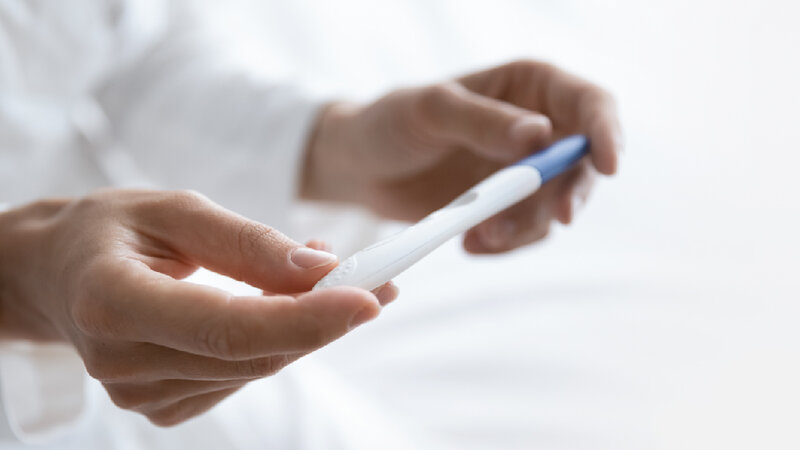

ICSI (Intracytoplasmic Sperm Injection) is becoming an increasingly popular fertility treatment option for couples experiencing infertility. Beyond being a solution to help achieve pregnancy, ICSI offers several important advantages that make it a preferred method for many:
- Reduced risk of genetic abnormalities: One of the key benefits of ICSI is the ability to screen embryos for genetic disorders before implantation. This helps lower the risk of passing on inherited conditions such as Down syndrome and thalassemia.
- Higher fertilization success rate: ICSI involves directly injecting a selected healthy sperm into a mature egg, significantly increasing the chances of successful fertilization compared to traditional IVF methods.
- Long-term storage of eggs and sperm: Eggs and sperm used in ICSI can be frozen and stored for up to 10 years. This provides flexibility for individuals planning to conceive later in life or those undergoing fertility-impacting treatments such as chemotherapy or radiation.
- Embryo preservation for future attempts: Fertilized embryos can also be cryopreserved and used in future cycles. If the initial transfer does not result in pregnancy, the frozen embryos can be transferred later without the need for another round of ovarian stimulation.
Is it painful to do ICSI?
Undergoing ICSI (Intracytoplasmic Sperm Injection) is generally not painful. Most of the procedures involved cause only mild discomfort, as pain relief or anesthesia is commonly used during certain steps — such as ovarian stimulation injections and egg retrieval.
Some women may experience mild cramping or discomfort similar to menstrual pain after egg retrieval or embryo transfer. These symptoms usually subside within 1–2 days. If you’re concerned about pain management during the ICSI process, you can consult your doctor for additional pain relief options to make the experience as comfortable as possible.
How long does ICSI take from start to finish?
The entire ICSI (Intracytoplasmic Sperm Injection) process typically takes around 4–6 weeks from start to finish. This includes initial health check-ups, hormone blood tests, and around 8–10 days of ovarian stimulation injections.
Following that, the eggs are retrieved and the male partner’s sperm is collected. Fertilization is then carried out using the ICSI technique. The embryos are cultured in the lab for about 5 days, during which time preimplantation genetic testing (PGT) may be performed.
Finally, the embryo is transferred back into the uterus. About 9–11 days after the transfer, a blood test is scheduled to measure pregnancy hormone levels and confirm if implantation was successful.
What to do after ICSI treatment
After the embryo transfer in an ICSI cycle, it is recommended that the woman rest for at least 15–20 minutes. It is important to avoid sexual intercourse, vaginal douching, strenuous exercise, and heavy lifting, as these may interfere with the embryo implantation process.
Following your doctor’s instructions closely is essential during this period. If you experience any unusual symptoms, contact your doctor immediately for further evaluation.
What are the success rates for ICSI?
The success of ICSI (Intracytoplasmic Sperm Injection) depends on the underlying cause of infertility. While ICSI can significantly increase the chances of fertilization, overall success rates can vary from couple to couple.
To improve the chances of a successful pregnancy, both partners should maintain a healthy lifestyle—eating a balanced diet, avoiding alcohol and smoking, exercising regularly, and getting adequate rest. Most importantly, it’s recommended to consult a fertility specialist as early as possible to receive personalized and timely treatment for infertility.
ICSI at Nakornthon Hospital
ICSI (Intracytoplasmic Sperm Injection) is one of the most advanced technologies for infertility treatment, offering a high chance of pregnancy for couples. For those interested or seeking more information about ICSI, Nakornthon Gift Fertility Center at Nakornthon Hospital is well-equipped to provide top-notch care. Our dedicated team of fertility specialists, with over 20 years of experience in reproductive medicine and infertility treatments, is committed to helping you achieve your dream of parenthood.
With state-of-the-art technology and a comprehensive treatment plan, we offer tailored solutions to address your unique fertility needs. If you have any questions or would like to discuss your options, please don’t hesitate to contact us. We are here to support and guide you through every step of your fertility journey.
For more information, please contact:
- - Website : https://en.nakornthon.com
- - Facebook : Nakornthon Hospital - International Patient
- - Line : @nakornthoninter
- - Tel: 02-450-9999 (Available 24 hours)


Dr.Ong-Arj Bovornsakulvong
Obstertrics and Gynaecology / Reproductive Medicine
Nakornthon Gift Fertility Center
Free Online Consultation
Article of Nakornthon Gift Fertility Center
Infertility: A Common Reproductive Issue That Can Prevent Pregnancy
Embryo Chromosome Screening Using NGS: A Technique for Detecting Fetal Abnormalities Before Pregnancy



